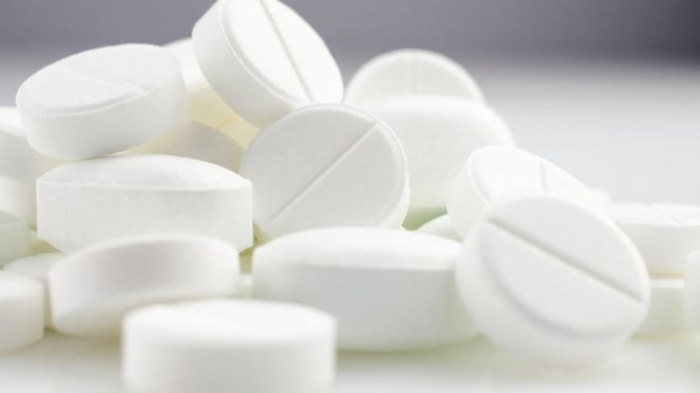Now, the results of a new study show just how many people are popping a daily aspirin when they don't need to (and perhaps shouldn't be).
The most up-to-date guidelines from the American College of Cardiology (ACC) and the American Heart Association (AHA) say that anyone over the age of 70 with heart disease, or anyone younger with heart disease and an increased risk of bleeding, shouldn't be taking a daily aspirin.
The official advice now is that only a select number of 40 to 70-year-olds with a higher risk of developing heart disease should be taking 75-100 milligrams of aspirin a day, and that call needs to be made by a doctor.
Using the most recent numbers available - from the 2017 National Health Interview Survey, which is representative of the US population - researchers analysed a sample of data on 14,000 adults older than 40 years.
Then, by scaling the findings up to the entire US population, the study estimated that approximately 29 million people aged 40 and above were taking a daily aspirin without having any known heart disease; 6.6 million of them are doing so without a recommendation from their doctor.
Another 10 million people over the age of 70 without any current heart disease problems are still taking an aspirin every day, the study shows – something the latest ACC/AHA guidelines specifically advise against.
"Many patients are confused about this," study lead author and physician Colin O'Brien from Beth Israel Deaconess Medical Center (BIDMC) in Boston told the Associated Press.
"We hope that more primary care doctors will talk to their patients about aspirin use, and more patients will raise this with their doctors."
Even though the aspirin-taking data in this study dates from before the most recent update to the heart health guidelines, released in March 2019, it's still a concern that millions of people could be taking pills when they shouldn't be.
It's also worth pointing out that daily aspirin intake is still recommended for those who have previously had a heart attack, because of its blood-thinning properties. The issue is that doctors need to make the call, and that a large chunk of people in the US might not be aware that their daily aspirin habit could be unnecessary or harmful.
Earlier this year, a study of 164,000 people without existing heart disease conditions showed a 0.38 percent lower absolute risk of heart attacks, strokes, or death from cardiovascular events based on daily aspirin intake. At the same time, the data showed a 0.47 percent higher absolute risk of severe internal bleeding.
Other studies have come to similar conclusions: that aspirin intake isn't all that beneficial, especially as people get older.
"Although prior American Heart Association and American College of Cardiology guidelines recommended aspirin only in persons without elevated bleeding risk, the 2019 guidelines now explicitly recommend against aspirin use among those over the age of 70 who do not have existing heart disease or stroke," says general internist Christina C. Wee, also from BIDMC.
"Our findings suggest that a substantial portion of adults may be taking aspirin without their physician's advice and potentially without their knowledge."
In other words, for a lot of us, taking one aspirin a day brings little benefit and a high risk of other health complications. As always, the best person to speak to is your doctor – don't just assume the old rules about aspirin still apply.
And the ACC/AHA still recommend that the best way to guard against heart health problems is to focus on a healthy lifestyle – what you eat and how much exercise you get – rather than taking a daily aspirin.
"These findings are applicable to adults who do not have a history of cardiovascular disease or stroke," says primary care physician Stephen Juraschek, from BIDMC.
"If you are currently taking aspirin, discuss it with your doctor to see if it is still needed for you."
The research has been published in the Annals of Internal Medicine.
More about:
















































